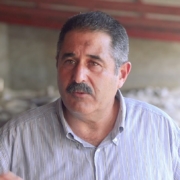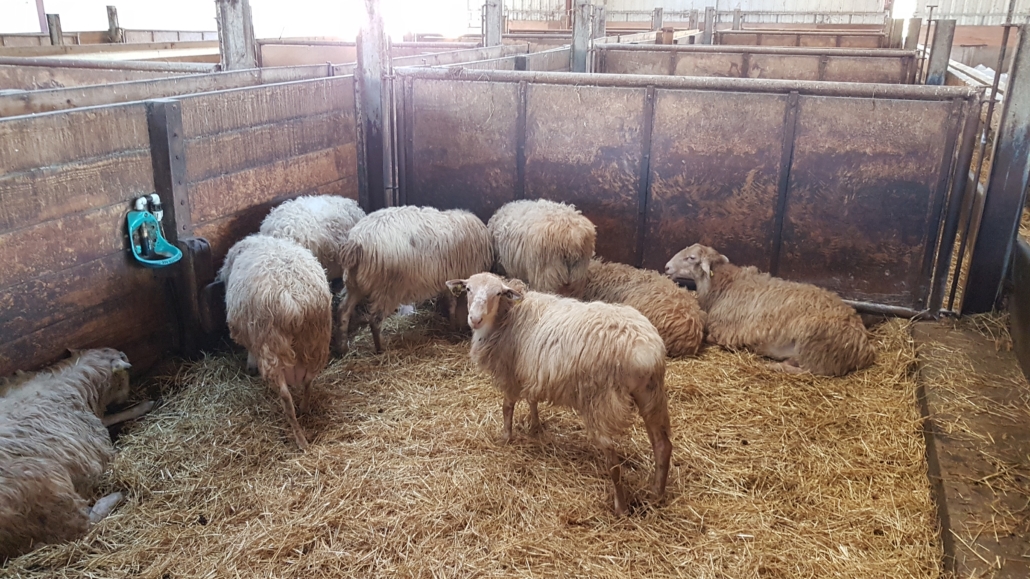From 17 to 21 September 2018, 4 Tunisian breeders from the agricultural development group of sheep breeders from the North (GDAEBN) and their veterinarian went to discover the sheep breeders (meat and milk) of the Atlantic Pyrenean and Lot regions.
Since 2014, Fert has been working with sheep breeders and their organisations in north-west Tunisia. However, this study tour testifies to the closer partnership between Fert and GDAEBN that began in early 2018.
In order to contribute to the professionalization of sheep breeding in northern Tunisia, GDAEBN has launched activities to improve the genetics of local breeds. It is currently working to make the selection schemes functional and it is in this context that Fert made the first contact with Coram (the collective of local mountain breeds). Coram brings together the selection organisations in charge of managing and orienting the selection schemes as well as promoting local mountain breeds. Coram and GDAEBN share a large number of values and objectives.
Significantly facilitated by Coram and its members and partners, the five-day study tour was therefore organized in two phases.
Participation in the Seram2 conference: the European Week of Local Mountain Breeds, organised in Oloron-Sainte-Marie
Through visits to summer pastures, pastoral groups, cayolars…, Tunisian breeders were able to understand :
- The attachment of breeders to pastoralism, their territory and their local breeds.
- The importance of a collective work in the management and planning of pastoral areas, as well as in the management and improvement of local breeds.
- The involvement and investment of young people in these pastoral activities.
- As well as the entire social and economic organization that governs these pastoral areas.

“What struck me is that they are not focused on performance at all costs, they are looking for a fair valuation of their work, it is a search for balance.”
The thematic workshops and plenary discussions helped to better identify other issues:
- The necessary evolution of the specifications of the labels and the objectives and criteria of genetic selection, but with vigilance so that “we (i.e. the breeders) can remain in control of these tools“.
- The importance of “the taste for the mountains” and training, in addition to living conditions and economic interests, to guarantee the renewal of breeders.
- The heritage and environmental dimension of pastoralism is becoming increasingly important and recognized in France.
The Seram also allowed Tunisian breeders to meet their peers from other mountains in France and Europe.
3 days of visits and exchanges with breeders and their organisations in the Atlantic Pyrenean and Lot regions
- A time for discussion with the Chambre d’Agriculture 64, in order to better understand the organization of sheep breeding stakeholders in the department.
- Exchanges and visits with the Axuria cooperative, in order to better understand what motivated the breeders to federate into a cooperative, how the cooperative was then organised around the “Pyrenean suckling lamb” label and the cutting and marketing services it offers to its members, how traceability works…
- Exchanges and visits with the CDEO64 – departmental centre for sheep breeding – in order to better understand the genetic services currently offered by the cooperative and their functioning, the involvement and role of breeders in the selection guidance, the management of selection schemes, the monitoring of breeders, the dissemination of genetics, the link between technicians and breeders….
- Exchanges and visits with the Capel cooperative group and Ovilot, in order to better understand the services offered by the cooperative in terms of genetics, advice, marketing (slaughter assistance, traceability, labelling, etc.), to understand how they have been gradually set up by breeders and their organisation, how they are managed, what are their challenges…
The exchanges were extremely rich, both in terms of technique, functioning and organization. Tunisian breeders have returned to Tunisia full of hope and with a lot to assimilate.
When they returned to Tunisia, the breeders also decided to share all their lessons with the other members of the group, in an effort to share and gradually unite them around the same ambitions.
To learn more about the GDAEBN, find the presentation video by following this link.
“The French breeders have shown us that this can work. We are now wondering how, at home, we will succeed in uniting breeders, in making them understand that the keys to our development are in our hands, and that only the collective can do it.“
“Genetics and brands or labels are long-term investments: even if they can offer farmers quick returns, we must consider it in the long way so that our choices today do not turn against us tomorrow.”
“We understood that we must start small, with investments (small but well targeted). Basically, we must first build the foundations and only when it is solid add more stones.”



